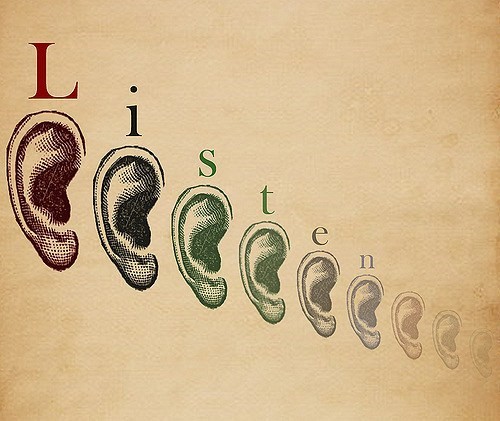Communicate – Provide Information – Inform

To optimize your settlement efforts, you have no less than three people that you must persuade – your client, the mediator, and your adversary. If you have not fully informed your client of the strengths and the weaknesses of the case, then you have not helped your client fairly evaluate the range of the case’s value/exposure. To optimize the mediator’s opportunity to achieve settlement within the range that you desire, the mediator needs to believe you and needs to buy into the position that you are selling. And that requires you to arm the mediator with knowledge of at least the most significant weapons that are available to you and with knowledge of your fair assessment of the challenges to those strengths. As for the third leg of the communication stool, you should always serve as a voice of reasoned advocacy to your adversary.
2. Listen – Receive Information – Be Informed

You selected the mediator. Listen to what she/he has to say, and sincerely question your mediator about the nuances of the case. Use the mediation as your time to get independent and candid insight into the case from the perspective of another.
Listen to your adversary’s points of view and do not leave the mediation without having learned at least one important thing about the case. If your adversary will not provide his/her position statement to you and/or is reluctant to speak candidly with you, your opportunity to learn about your adversary’s position through the mediator and the need for you to drill down on certain points or triggers to gain more knowledge are all the more important.
3. Timing is Everything

Have Party Depositions Been Taken?
Has Too Much Time and Expense Been Invested?
Have You Provided The Mediator With Enough Ammunition?
Has MSJ Been Filed?
Anniversaries?
Reporting to Your Client(s)
Clients often want a quick resolution through settlement, and you should too. A good and quick resolution requires good and efficient work as soon as possible because you need to be able to help your mediator help you. To do so, requires knowing what information she/he needs to be able to work for you, and such work should help you realize sooner rather than later the significant problems that confront you. How quickly you can get your case ready for mediation depends upon a lot of factors that you can at least indirectly control by knowing your adversary’s tendencies and by educating yourself and your client as to what the case likely requires to have it ready for mediation.
4. Be the Voice of Reason

One of the most important tools that you have is credibility, and one of the most important elements of effective advocacy is well-reasoned argument. If you cannot tell your client’s story in an honest and straightforward manner, then your story needs to be changed. You must figure out how you can turn problems into your solution. You must embrace the weakest elements and work them into the truth of your client’s story. If you shy away from this difficult, productive work, you do yourself and your client a disservice. You lose the energy that you could have otherwise used to at least have tried to get the mediator to understand your position, and you empower your adversary because your strength as an advocate is diminished.
5. Control your Money – Control Your Expectations

Numerous factors impact the value of every case. You generally have little control over many of the factors that significantly impact value. As discussed above, you do have some control over how quickly and efficiently you understand the case and over how you communicate your case’s story. An evaluation of the range value/exposure must not be based upon what you want or expect. Your evaluation must be based upon a clear understanding of the facts, how the facts will be presented, and how the presentation will likely be perceived. How all of this impacts value/exposure should govern your expectations. This objective and informed control of your own expectations and the expectations of your client should optimize your results.
6. Know the Pressure Points and Apply the Pressure – The Game is Within the Realm of Reason

Every case has a value within a range of reason. The scope of the range is dependent upon a wide variety of factors. Your knowledge and understanding of those factors are crucial to your evaluation. Once you determine the reasonable range of settlement and after you have reconsidered your range through a thoughtful and perhaps a civil debate with the mediator, work to get to the periphery of the range. Work within the range is productive. Most of the time spent “negotiating” in the realm of the absurd is not productive. If your adversary seems to most enjoy his/her time in the realm of the absurd, try to not fall prey to joining him/her in that realm for long and try to facilitate a healthy and productive conversation as an alternative. Anchoring your demand or your offer to tangible and reasoned points is a good tool. Using a bracket with reasoned explanation is another tool that serves to put the position into context.
7. Respect – Be Respectful

Disrespect fosters distance, builds defenses, tears down rapport, and breeds hostility. Control your emotions. Control your engagement. Build relationships. If you make your engagement personal and negative, you get in the way of your own opportunity to build a path to resolution. If your negative feelings about your adversary derive from the message, then use your perceived problems with the message or story to refocus the discussion and engagement upon a more compelling one.
8. Be Flexible – Be Innovative

Rigid and unyielding reaction to developments that should occur during a productive exchange of viewpoints and messages during the mediation likely means that you are not listening. And if the dialogue and the exchange of information gets stuck, figure out a way to break through the morass that is stalling the progressive movement into the range of reason. Be prepared to present a compelling power point or video display that visually tells your client’s story. Be prepared to take a calculated risk that disrupts the status quo.
9. Do Your Homework First

Do your homework. Get everyone who is essential to final settlement to the mediation – even if only remotely.
10. Be Candid With Opposing Counsel As To Problems and Possible Solutions

To what extent can you stop being adversaries and find at least one facet of the mediation where you can work together against a third party who is effectively an adversary to your common purpose? Medical expense lien holders and workers compensation liens in cases of questionable liability are a couple of easy examples.
11. Link to Reality

Every offer and every demand should be better considered and will be better conveyed if linked to a well-reasoned basis that is effectively explained. “We are offering/demanding ____, for the following reasons…”
12. Don’t Always Be the Smartest Person in the Room

No one likes a “know-it-all.” If you are always the smartest person in the room, then find a better mediator. If you are always the smartest person in the room, then you are likely not listening, are likely perceived as being disrespectful, and will not be as well received as you would be with a more nuanced delivery. Your ego should not impair your ability as an advocate. Confidence that helps you deliver a compelling message with reasoned conviction is good. That is not the same as being the “know-it-all.”



